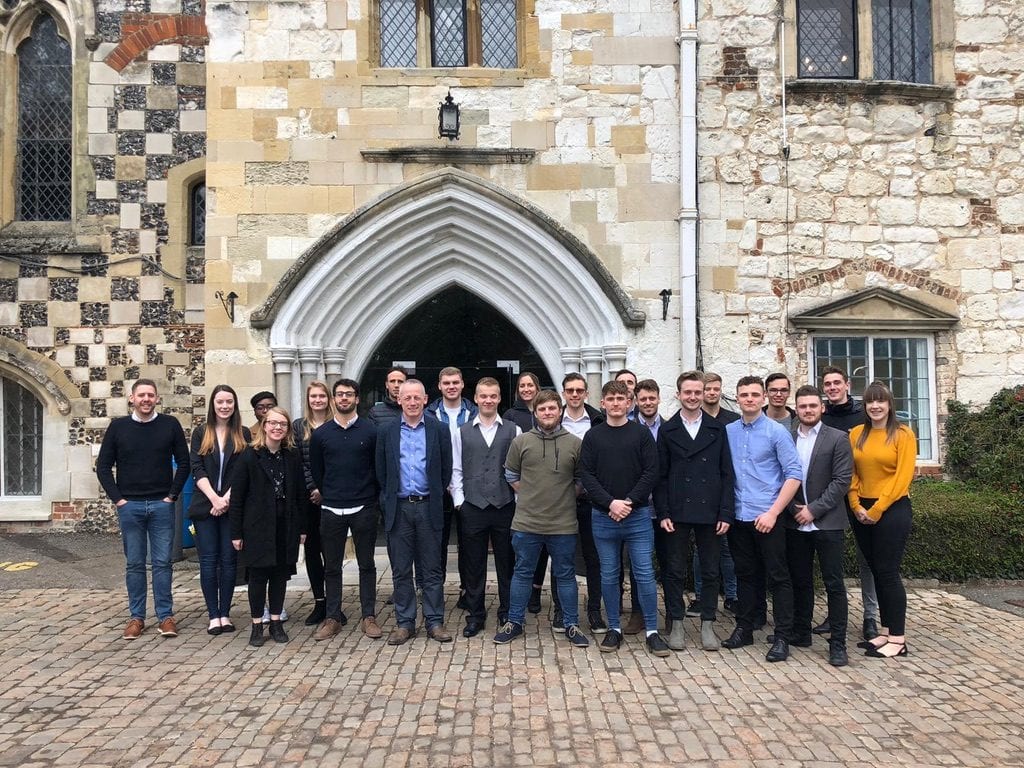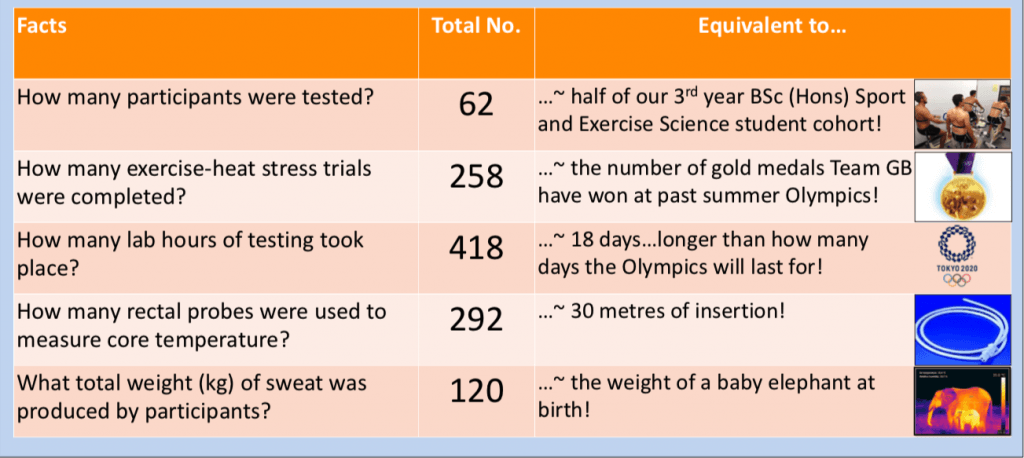On Wednesday 20th March, eighteen BSc (Hons) Sport and Exercise Science students from the University of Brighton visited Bisham Abbey National Sports Centre to present their dissertation findings to practitioners of the English Institute of Sport (EIS) around optimising performance to the heat expected at the Tokyo 2020 Olympics and Paralympics.
Co-Head of Physiology at the EIS, Dr Esme Matthew, said,
I just wanted to say a HUGE thank you to you and your team for yesterday (and all the work that went into the poster session beforehand). I can’t tell you how valuable it was, and what a buzz the team got from spending time going round all the posters. The students were brilliant, very professional, and had clearly put a lot of thought and effort into their posters, you must be really proud of them all.

It was an early start for our students…
[Raul Campoy Sirwani, Ben Fawley, Tom Jansons, Luke Row, Harry Cook, James Sinfield, Jack Blenkarn, Dan Littler, Dan Burford, Frank Lamdin, Josh Hill, Iona O’Shea, Charlotte Hardy, Chris Barker, Kukena Kaindama, Amelia Monkcom, Ellie Hogg, Sami Huseyin]
…leaving Eastbourne at 7am on the dot! Once we arrived and after some quick refreshments and the posters were up, Esme Matthew welcomed the University of Brighton’s Environmental Extremes Lab Team to the EIS event. Along with the students, this included Dr Neil Maxwell, Dr Mark Hayes as well as PhD graduates and former colleagues, Dr Oli Gibson (Brunel University), Dr Jess Mee (University of Worcester) and Dr Ash Willmott (Anglia Ruskin University).
Dr Neil Maxwell gave a short presentation to thank the EIS for the invitation and opportunity for our students to get a glimpse of the challenges the EIS practitioners will face in supporting the elite athletes in the lead up to Tokyo 2020 Games. He also acknowledged the considerable effort the students had put into producing the posters and 2 months ahead of their dissertation deadline!

Before starting the poster session and to capture the enormity of what the students had achieved, Neil shared some interesting facts with the audience.

The main event of the poster communications, saw project teams deliver multiple 2 min summaries of their studies to small groups of EIS practitioners before discussions took place. There was a real energy in the room where our students interacted with the practitioners, imparting what they understood from their data, but also learning from them too. The students then had the opportunity to listen to one of the EIS practitioners present a proposal for a future research study with a Paralympic focus and observe first hand the challenges that must be overcome when supporting elite athletes. Some of our students even had the confidence to ask questions and contribute to the debates, so really engaged in the applied problem-solving experience.
After lunch and to conclude the day, Dr Gareth Turner, Physiologist for GB Rowing, toured us round the facilities at Bisham Abbey National Sports Centre, explaining what his job entails and some of the challenges that he faces working in elite sport. He also talked about some of the characteristics the EIS look for in their practitioners for those thinking of this career direction.

Our Sport and Exercise Science students developed their dissertation projects with support from University of Brighton supervisors and the EIS Co-Head of Physiology, Dr Emma Ross. They presented their findings as posters at this EIS Tokyo 2020-focussed Conference. Harder science and softer communication skills were developed in this opportunity to contribute to cutting edge research to improve the chances of securing medals at the Tokyo 2020 Olympic and Paralympic Games. It was a memorable day and at least for the first 30 minutes on the bus home there was a real buzz…until the tiredness caught up with them!
Well done to all the students who took in this EIS Supported Dissertation Project opportunity. You did yourself and the University proud!






Great to see and hear about EEL’s work and students achievement. Thanks for sharing . The Savorys
thanks for your information